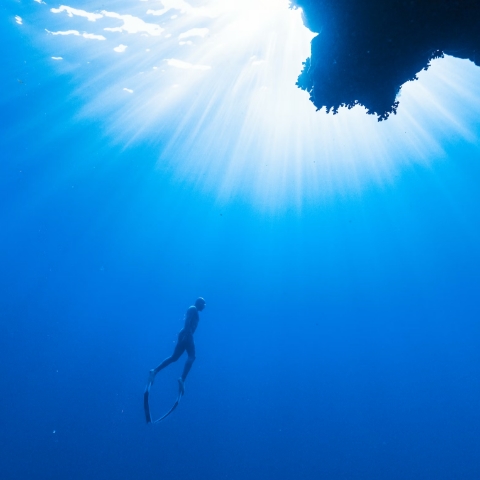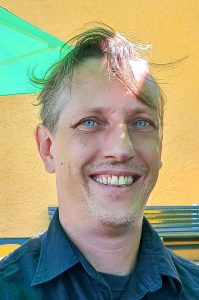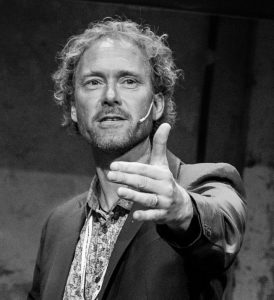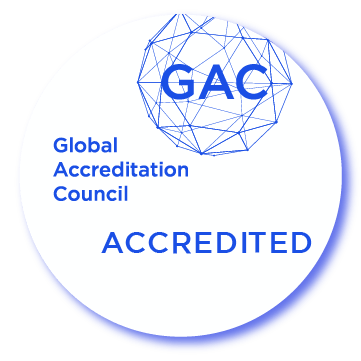
Course Type: Macro Lite (Pre-Recorded Course)
Academic Credit: Masters – 3 credits; Doctoral – 3 credits
Faculty: Dr. Peter Merry, Dr. Wolfhardt Janu
Enrollment: This course is available both to enrolled students and lifelong learners
Email our Registrar Veronica Saldias for more information
Pre-requisites: We highly recommend that you take Science and Consciousness of Self before this course. Reference will be made to practices and content from that course.
PLEASE NOTE: This course is a recording of a recent live webinar series. We are currently finalizing the editing of the videos. The course was originally called “Hack the World” and part of the Modern-day Magic series, hence any references to those names.
Science and Consciousness of the World introduces you to the basics of applying the scientific method to your own consciousness experiments. It includes both theory and practice. You will get a solid explanation of the do’s and don’ts of consciousness practice and scientific exploration, referencing examples from the history of science and consciousness exploration. These theories will also enable you to understand and calculate the basic statistics you need to be able to evaluate your own practical results in various consciousness experiments.
In the practice part, you can choose from a number of classical and more recent consciousness experiments. You will be guided in practicing them on your own, or together with your fellow participants. Although the experiments aim to influence information in a non-local way, we will be following a thorough scientific protocol as we conduct them.
Homework is introduced at the end of each module.
By the end of the full Science and Consciousness of the World program you should be able to:
- Develop a well-informed pathway for your own consciousness development
- Work with a community of fellow practitioners to deepen your understanding and practice
- Draw from a collection of consciousness experiments and experiences to suit your purpose
- Set up, run and evaluate a consciousness experiment using scientific protocols and statistics
- Explain and assess consciousness experiences through an Integral lens
- Select appropriate technology for a consciousness experiment, including Random Event/Number Generators
- Describe the history, current practice and future potential of consciousness development
This course is divided into three parts of four module each.
By the end of Part One, you will be able to:
- Carry out and evaluate a remote perception experience with a buddy
- Describe different ways of assessing your magic experiences
- Prepare yourself properly for any magical activities
- Manage your inner responses to success and failure
The components of Part One include:
- Setting up, carrying out and evaluating remote perception experiences
- Playful live magic experiences
- Overview of perspectives on magic, shadow work and the scientific method
- Working with a buddy practice system
- Homework exercises and keeping a Lab Book
By the end of Part Two, you will be able to:
- Explain how to evaluate your consciousness experiences in terms of psychology, spirits, energy, and information theory
- Set up a consciousness experiment using a basic scientific protocol
- Work with a basic statistical analysis of your consciousness experiment
The components of Part Two include:
- Working with a consciousness experiment of your choice
- Understanding consciousness through the lenses of psychology, spirits, energy, and information theory
- Scientific protocols for experiments
- Basic statistics for evaluating your experiments
- Preparing for a full scientific experiment and establishing a baseline
- Homework exercises and journal
By the end of Part Three, you will be able to:
- Set up, run and evaluate a consciousness experiment using scientific protocols
- Evaluate consciousness experiments using a thorough statistical analysis
- Explain how to use Random Event/Number Generators to measure the impact of consciousness experiments
- Describe possible experiences in the advanced use of consciousness
- Make informed decisions about how to continue your development in consciousness
The components of Part Three include:
- Further statistics for evaluating your experiments
- The history and use of Random Event/Number Generators
- Deepening and expanding the consciousness experiment of your choice
- What to expect in advanced consciousness experiences
- Developing consciousness in the world today
- Homework exercises and journal
Faculty:
Dr. Peter Merry
is core faculty for the Hack the World courses. Peter is co-founding Chief Innovation Officer at Ubiquity, co-founder of Wyrd Experience and Wyrder Tech, and initiator of the Broughton Science and Consciousness conferences. He has worked in and across different sectors. As well as co-founding and leading the organisations above, his experience includes facilitating integral change processes in multinational corporations, government ministries, and in multistakeholder initiatives with global stakeholders. Peter has also spent many years in the not-for-profit sector. He is a recognised expert in the field of evolutionary systems dynamics and Spiral Dynamics Integral. His first book was published in English and Dutch (Evolutionary Leadership, 2005) and his second in 2019 (Why Work? on designing work for people and planet. His third book on 12 principles for working with the energy of land and organisations (Leading from the Field) came out at the end of November 2020. He has an MSc in Human Ecology from Edinburgh University and a PhD from Ubiquity’s Wisdom School on volution theory (see https://volutiontheory.net). His personal website is https://petermerry.org.

Dr. Wolfhardt Janu is core faculty for the Hack your World courses. He holds a PhD in chemistry and worked for 10 years in academic research. He then moved to be a freelancer in software and hardware development for customized laboratory solutions.
At the same time he set up his own private laboratory to investigate the relationship between matter and consciousness, his main scientific interest for 25 years. Together with his colleagues and friends he developed a new method to scan the output of two random number event generators (REG’s) for correlations, which enables one to detect with high precision changes in a non-local field, mainly known as the field of consciousness.On his journey, he has been practicing Bujinkan Budo Taijutsu for 19 years, discovered African Shamanism (Sangoma) and (co-)led several private scientific teams investigating the “paranormal” in theory and practice. In 2007 he got to know the work of Ken Wilber and since then he and his team(s) have been using the Integral map as the main tool to navigate and communicate on the margins of the so-called “unknown”. Wolfhardt Janu is married, has two children and lives in Austria.
Requirements for Degree Students:
- End of course essay on describing the impact on your life of studying this material
- For BA students – 6-9 pages in length
- For MA students – 10-15 pages in length
- For PhD students – 20-25 pages in length
___
The rules guiding our assignment collection and grading process can be found here: Ubiquity University Grading Policy
Information about how we process refund or cancellation requests can be found here: Refund and Cancellation Policy
If this is your first time purchasing from us, or you need a refresher, we suggest you review our tutorial How to Purchase a Course. If you do not have a user account, you will be required to create one upon your initial purchase. Save your username and password as you will need it to login to access course materials later and to make purchasing faster in the future. If you need technical assistance you can use the chat button located at the bottom, left-hand side of the screen and you can also email our Registrar, Veronica Saldias at registrar@ubiquityuniversity.org.



